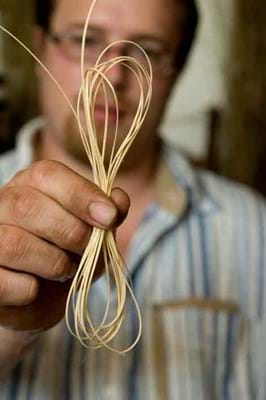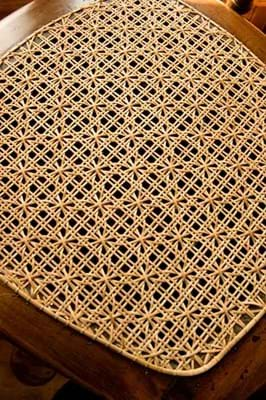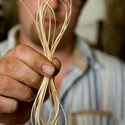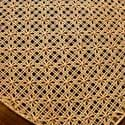Woven rattan is a key component of many pieces of Regency, Victorian and Edwardian seating furniture, and new supplies of cane are vital to restorers.
Indonesia is the world's largest producer of rattan, with more than a million rattan cutters supplying about 80% of the raw material to the global market. However, exports of finished rattan products have fallen markedly in recent years following competition from manufacturers in the Far East.
While supplies of rattan - the name given to roughly 600 species of vine-like palms native to tropical regions - have suffered through deforestation, the current shortage reflects a decision by the Trade Ministry of Indonesia to ban the export of raw and semi-processed rattan with the intention of reviving local manufacturing.
The embargo, introduced on January 1, 2012, as part of a controversial five-year plan, seeks to encourage and increase both the production and the consumption of home-produced items.
Rocketing Prices
An unforeseen consequence of the ban is that users of relatively small quantities of rattan cane, including restorers of antique furniture and craft specialists, have been affected alongside big business.
Russell Theaker of The Cane and Rush Workshop in Princes Risborough, Buckinghamshire, told ATG he was facing rocketing prices and a distinct shortage of working materials (as stockpiles have dwindled, some widths of rattan are very hard to come by). Man-made substitutes are available but not suitable for antique furniture.
With no prospect of this situation improving, Mr Theaker has launched an online petition in the hope of winning the restoration trade an exemption from a prolonged embargo.
"Our aim is to persuade Parliament to encourage the Indonesian government to consider issuing special licences to established companies currently importing rattan products for use solely within the restoration trade in order that we may continue our important heritage craft," he said.
- Readers can add their name to the petition at this address: www.ipetitions.com/petition/rattan-export-ban








